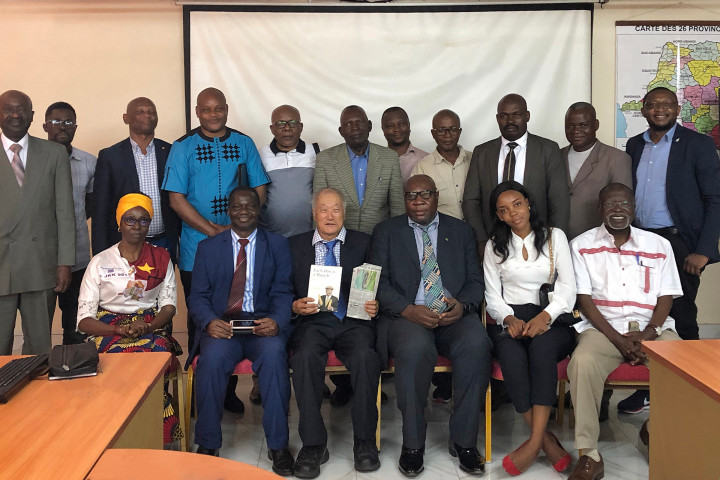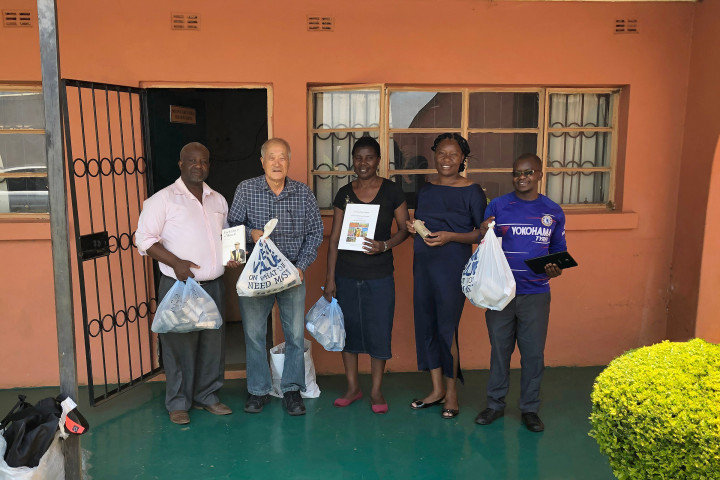
558 Handong-ro Buk-gu, Pohang Gyeongbuk 37554 Republic of Korea
Copyright (c) Handong Global University. All Rights Reserved.
The ‘Corn Expert’ Kim Soon Kwon, Handong University chair-professor (chairman of the International Corn Foundation, donated 1000 species of genetic resources of Africa-Korea corn to 5 countries in Africa: Ghana, Zambia, Kenya, Democratic Republic of Congo, etc. It is the first time for the 1000 species of new genetic resources (500 native species, 500 hybrid species) to be sold to the 5 African countries, where each country having the product value of 10 billion won.
Dr. Kim Soon Kwon visited Africa at the request of the African Development Bank (AfDB), from Oct. 4th to Nov. 2nd, and received high praise for supplying corn species that withstand damages caused by climate change and insects. Recently, there was also good reactions toward the Black Corn (Handong Black Corn) that proved to be efficient for the prevention and treatment of diabetes.
At the request of the Cambodian government, Dr. Kim Soon Kwon and the International Corn Foundation are also pushing ahead to supply 1000 species of genetic resources, which were bred from 2004, to the ASEAN countries after the Korea-ASEAN Special Summit that took place in Busan. Dr. Kim Soon Kwon was once appraised 5 years ago for supplying, as a task from the Foreign Ministry, Honey corns that are strong against downy mildews. The recent genetic resources that are to be supplied are not only diabetes-specified Black corns, but also include Zergolin corns, which are 20% more efficient in feed, and Leafy livestock corns, with 7 leaves more grown. With these new inclusions, it is expected to contribute greatly to the livestock developments of ASEAN countries.
On the other hand, it has been 52 years for Dr. Kim Soon Kwon to breed varieties of eco-friendly corns in both developed and developing countries like USA, Africa, and more. When it only grew white corns, Dr. Kim Soon Kwon once supplied and bred yellow corns that resist in Africa’s major problematic virus, insect harm, drought, etc. in Africa. From 2011, both the International Corn Foundation and Gi-Ah Daechek (Food for the Hungry) have been breeding adaptive corns in South-East Africa through supports from public fund-raising in Zimbabwe.

(Picture 1) Corn-related researchers in DR Congo, located in Central Africa. Commemorative photo of seminar and explanations on the donation of 1000 seeds to the Department of Agriculture Quarantine, Fire Control Institute, Seed Company, University Corn Research Team, Media and International Organization IITA Researchers (2019. 10. 25)

(Picture 2) Donation of 1000 species of Korean Corn to state corn researchers in Zambia, located in South-East Africa (2019. 10. 12)
